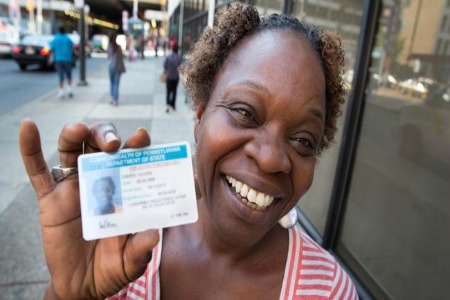
When Republican-led state legislatures and governors passed controversial voting bills throughout 2011 and earlier this year, the provisions at first appeared a major impediment to President Obama winning re-election. Many of the laws were adopted in key states, including Florida, Wisconsin and Pennsylvania, and liberal groups estimated they could prevent millions across the country from voting and would disproportionately affect blacks, Latinos and the elderly, who are less likely to have some of the forms of identification required by the laws.
But a strong alliance of activist organizations, the Obama administration and progressive media has largely blunted the impact of the laws, which range from requiring photo identification to vote to imposing fines on voter registration groups for turning in forms late. In nearly every battleground state, Democrats have successfully cast the laws as discriminatory and unnecessary and won in court, keeping in place largely the same voting laws that existed when Obama won in 2008.
Pennsylvania is the only close electoral state where a law requiring a photo identification to vote remains in place, and Mitt Romney has largely stopped competing there in the face of Obama’s strong, stable lead. And the Keystone State is now easing its requirements to get a new photo identification in the face of a court challenge.
To be sure, Democrats have not defeated all the voting changes, nearly all of which were backed by Republicans. In Pennsylvania, elderly voters who have voted for years there now have to obtain new forms to cast ballots. Four other states don’t allow anyone without a photo ID to vote, meaning thousands of people could still be disenfranchised if they don’t get an identification before Nov. 6.
A judge this week upheld a Republican-backed provision in Florida that limits early voting to eight days, six fewer than in 2008 and eliminates the Sunday before Election Day, when many black churches organize their congregations to vote after services.
But the Democrats have largely won the legal battle over the last two years, and that’s surprising in part because they started out with a major disadvantage: the U.S. Supreme Court and the American public have supported some of the GOP agenda on voting.
In 2008, the court upheld a photo ID law in Indiana, with then-Justice John Paul Stevens, normally part of the court’s liberal wing, joining five conservatives in support of it over the objection of progressive groups. A Washington Post poll last month found that 74 percent of Americans support a photo identification requirement before one can vote, mirroring other results that have shown even many Democrats and African-Americans back these provisions.
But an unusual coalition has emerged successfully against the laws. From the Obama administration, Attorney General Eric Holder, previously known more as a Washington insider and legal expert than civil rights crusader, started an aggressive campaign against the laws last year, likening them to Jim Crow-era discrimination.
Civil rights groups such as the NAACP and voting advocacy organizations like Rock the Vote and the League of Women voters have joined forces, finding the laws a threat in different ways. They worked around the Supreme Court ruling by filing lawsuits against these laws by citing constitutional protections in many of the individual states.
White Democrats joined black ones in opposing these provisions, turning a group of laws passed with little public notice in 2011 into a national sensation. While Obama has said little about them (and some of his campaign officials privately said the laws are as likely to affect conservative, elderly voters, many of whom don’t have driver’s licenses, as liberal-leaning minorities and college students), Bill Clinton spoke out against them at the Democratic National Convention. They were condemned in an episode of HBO’s “Newsroom” and frequently on both MSNBC and CNN.
And the united opposition to the laws among Democrat activists has pushed the party’s governors, such as North Carolina’s Bev Purdue, to veto these photo ID laws in spite of their popular support.
And even Republican-appointed judges have sided against the laws in some of the lawsuits.
This strong elite opposition to the laws has resulted in them being struck down across the country. Using his power under the Voting Rights Act, Holder has blocked the implementation of photo identification laws in Texas and South Carolina, two states that are not electorally important but where a combined 30 million people live. And a three-judge panel that included a justice nominated by George W. Bush affirmed Holder’s opposition to the Texas law in ruling.
“Simply put, many Hispanics and African Americans who voted in the last election will, because of the burdens imposed by SB 14, likely be unable to vote in the next election,” the judges wrote.
In March, a state court judge in Wisconsin struck down the state’s law requiring a photo identification to vote after a lawsuit from the Milwaukee chapter of the NAACP and the League of Women Voters. Two months later, in Florida, a federal judge struck down a GOP-backed law that imposed fines of up to $1,000 for groups who register new voters if they didn’t turn in the registration reforms within two days, eight fewer than the state had allowed before. Rock the Vote, which organizes young people to vote, had been among the groups to file suit against the law.
The Obama campaign itself won a lawsuit against a Republican-backed law in Ohio that would have eliminated early voting in the last three days before the election. And in Pennsylvania, the state’s Supreme Court has ordered a lower-court judge to review the photo ID provision and could strike it down if the justices feel the law is too significant a barrier to voting there.